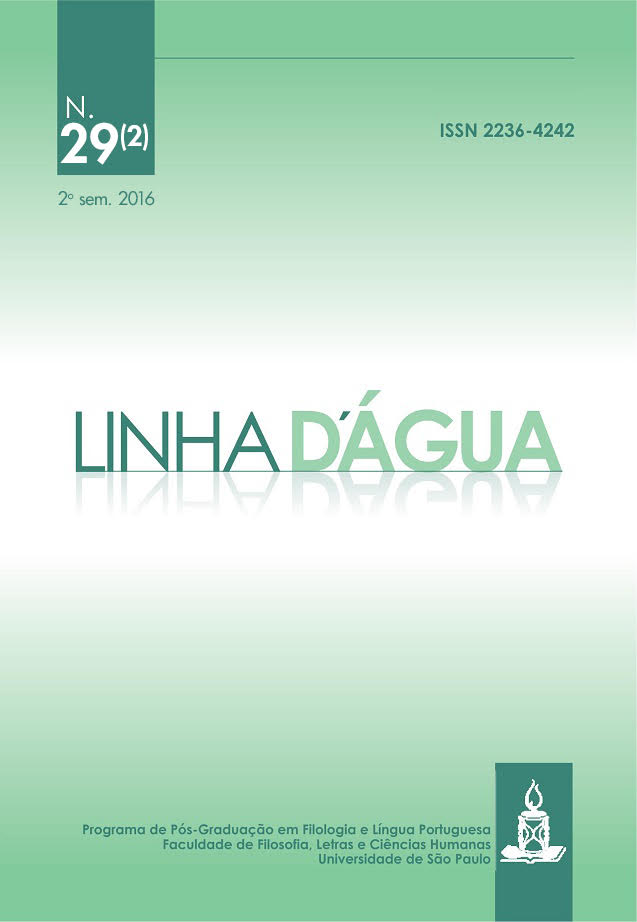The Argumentative Interaction in the Literary Discourse: From the Literature of Ideas to the Fictional Report
DOI:
https://doi.org/10.11606/issn.2236-4242.v29i2p5-41Keywords:
Discourse, Argumentation, Literary Text, Argumentative Interaction.Abstract
The argumentative dimension of the literary text expresses itself in the capacity to orient the view of its readers. Perelman’s theory inscribes the argumentative interaction in the orator’s discourse, and the contemporary works of Pragmatics and Narratology allow, on the one hand, the precise localization of interdiscursive instances as they are inscribed in the text and, on the other, the identification of the modalities of social grounding pertaining to the enunciative device, founding an approach to the literary text in a dialogic perspective. The argumentation in the literary fiction will, then, be analyzed through the relations that the author, the narrator and the characters assume with the narratee, making thus visible the pluridimensionality of argumentation in the literary text. Finally, the argumentative analysis of a rally’s speech, as it was represented by the writer Roger Martin du Gard in The Thiabault, affords showing how the narrator’s discourse conducts to a questioning of the first level argumentation, as well as how the latter unfolds itself in the relation between the orator and the audience.Downloads
Downloads
Published
Issue
Section
License
The Editorial Board authorizes free access to and distribution of published contentes, provided that the source is cited, that is, granding credit to the authors and Linha D'Água and preserving the full text. The author is allowed to place the final version (postprint / editor’s PDF) in an institutional/thematic repositor or personal page (site, blog), immediately after publication, provided that it is available for open access and comes without any embargo period. Full reference should be made to the first publication in Linha D'Água. Access to the paper should at least be aligned with the access the journal offers.
As a legal entity, the University of São Paulo at Ribeirão Preto School of Philosophy, Sciences and Languages owns and holds the copyright deriving from the publication. To use the papers, Paidéia adopts the Creative Commons Licence, CC BY-NC non-commercial attribution. This licence permits access, download, print, share, reuse and distribution of papers, provided that this is for non-commercial use and that the source is cited, giving due authorship credit to Linha D'Água. In these cases, neither authors nor editors need any permission.
Partial reproduction of other publications
Citations of more than 500 words, reproductions of one or more figures, tables or other illustrions should be accompanied by written permission from the copyright owner of the original work with a view to reproduction in Linha D'Água. This permission has to be addressed to the author of the submitted manuscript. Secondarily obtained rights will not be transferred under any circumstance.










